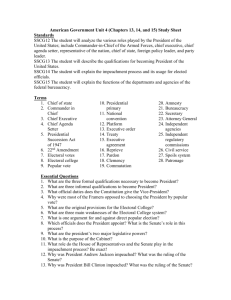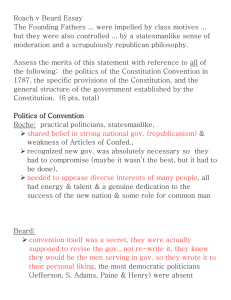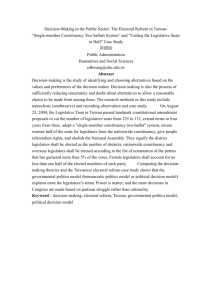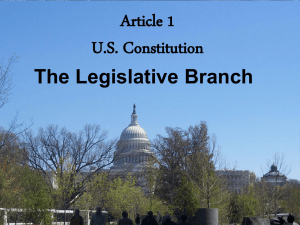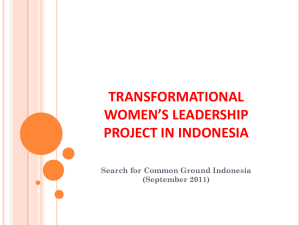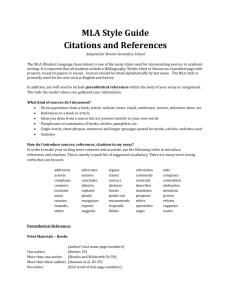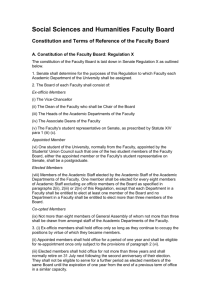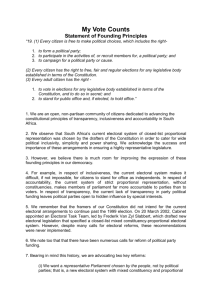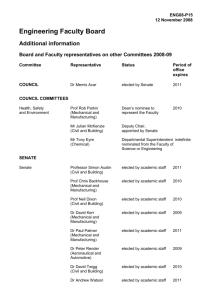Submission to the Joint Committee on the Constitution
advertisement
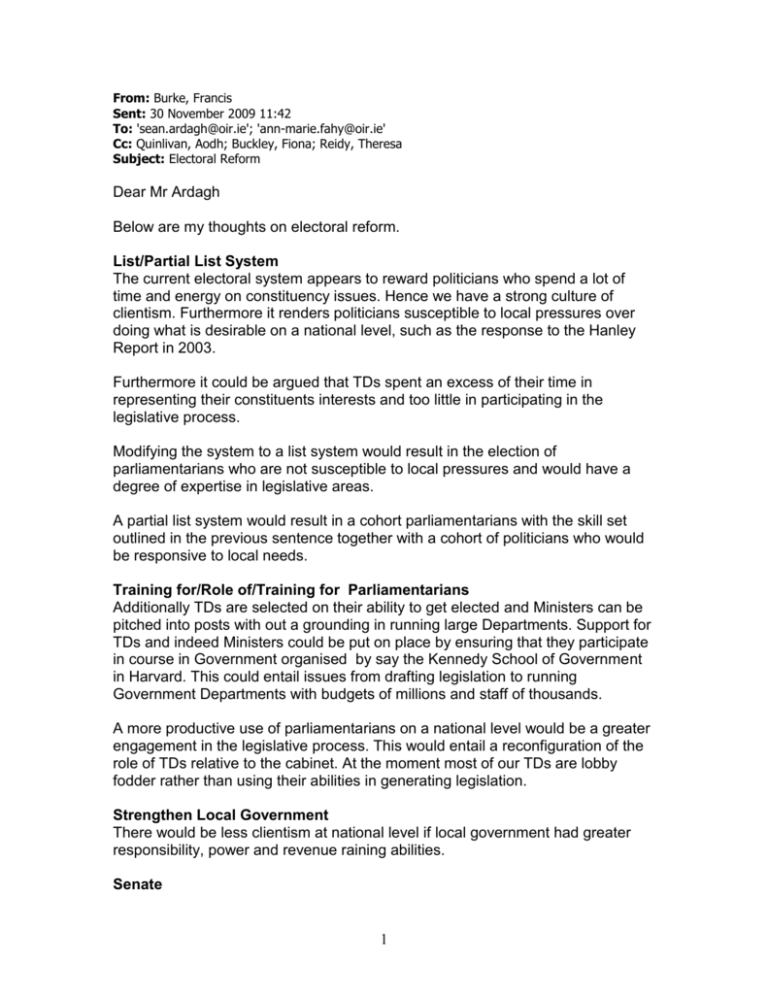
From: Burke, Francis Sent: 30 November 2009 11:42 To: 'sean.ardagh@oir.ie'; 'ann-marie.fahy@oir.ie' Cc: Quinlivan, Aodh; Buckley, Fiona; Reidy, Theresa Subject: Electoral Reform Dear Mr Ardagh Below are my thoughts on electoral reform. List/Partial List System The current electoral system appears to reward politicians who spend a lot of time and energy on constituency issues. Hence we have a strong culture of clientism. Furthermore it renders politicians susceptible to local pressures over doing what is desirable on a national level, such as the response to the Hanley Report in 2003. Furthermore it could be argued that TDs spent an excess of their time in representing their constituents interests and too little in participating in the legislative process. Modifying the system to a list system would result in the election of parliamentarians who are not susceptible to local pressures and would have a degree of expertise in legislative areas. A partial list system would result in a cohort parliamentarians with the skill set outlined in the previous sentence together with a cohort of politicians who would be responsive to local needs. Training for/Role of/Training for Parliamentarians Additionally TDs are selected on their ability to get elected and Ministers can be pitched into posts with out a grounding in running large Departments. Support for TDs and indeed Ministers could be put on place by ensuring that they participate in course in Government organised by say the Kennedy School of Government in Harvard. This could entail issues from drafting legislation to running Government Departments with budgets of millions and staff of thousands. A more productive use of parliamentarians on a national level would be a greater engagement in the legislative process. This would entail a reconfiguration of the role of TDs relative to the cabinet. At the moment most of our TDs are lobby fodder rather than using their abilities in generating legislation. Strengthen Local Government There would be less clientism at national level if local government had greater responsibility, power and revenue raining abilities. Senate 1 It takes thousands of votes to be elected as a University Senator, dozens to be elected by the vocational panel and one vote to be a nominated by the Taoiseach. The University Senate seats are the most democratic in the Senate. A case can be made to broaden the franchise of the University seats to incorporate Maynooth and Limerick BUT there is a more compelling democratic need to look at the electoral base for the other 54 seats in the Senate. Some imagination is required to broaden the electorate for the Senate. An example would be to reserve some Senate seats for election by Irish citizens living overseas. Having lived abroad for 12 years I know there is a great loyalty and interest in Irish politics by Irish citizens living overseas. It is possible to do this, other democracies manage it. Electronic Voting This issue has fallen into disrepute of late but this is due to perceived faulty implementation rather than anything being fundamentally wrong with the concept. If implemented properly electronic voting would deliver accurate results without any ambiguity. If configured properly it would also allow for voting from home. Conclusion I attended the meeting on this topic in UCC on 26 November. Two things struck me about our elected representatives who attended the meeting. It appears that they are comfortable with the workload in responding to constituents needs and also how limited their participation is in the legislative process. This is a waste of resources and talent. Changing to a list system and greater participation in legislation would entail a change in mindset by the electorate but more importantly by our elected representatives. It appears that there have been several previous commissions of our electoral system and system of Government and nothing has happened. I suspect that this is because that the people who make the decision on reform are our elected politicians who were elected on the basis of the current system – which suits them fine. Voting for change to the system would take them out of their comfort zone. But change is needed, why else have we had previous commissions on electoral/Government reform? Furthermore perpetuating the current system will lead to a continued decline in political engagement by the majority of the population. Implementation of the report by the Oireachtas Committee on Electoral Reform will require imagination, altruism, generosity and bravery by our politicians. I have spent an hour writing this, and a lot longer thinking about it, because while I believe that our system is electoral/Government system ok. But its only ok. It could be, should be better for the electorate and for our politicians, 2 Yours sincerely Dr F M Burke University Dental School and Hospital Wilton Cork Ireland http://www.ucc.ie/en/dentalschool/AboutUs/StaffList/DrFrancisBurke/ 3
